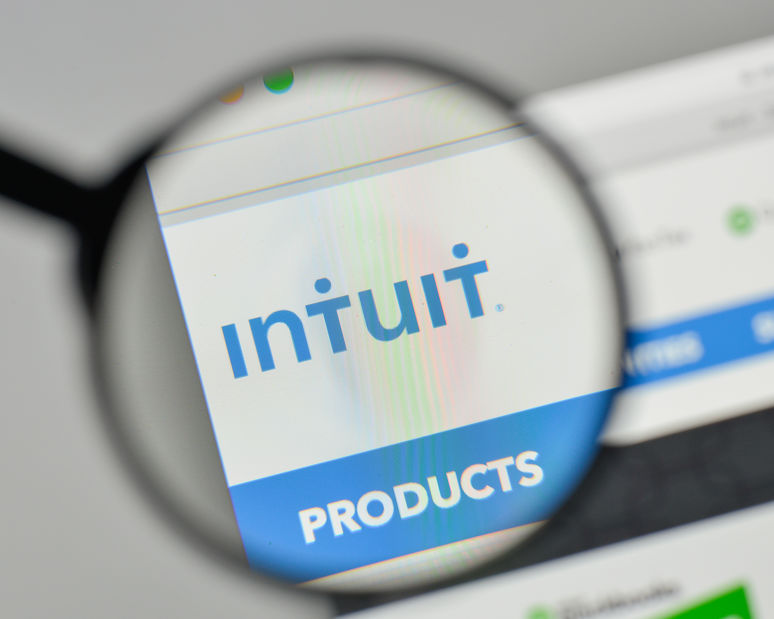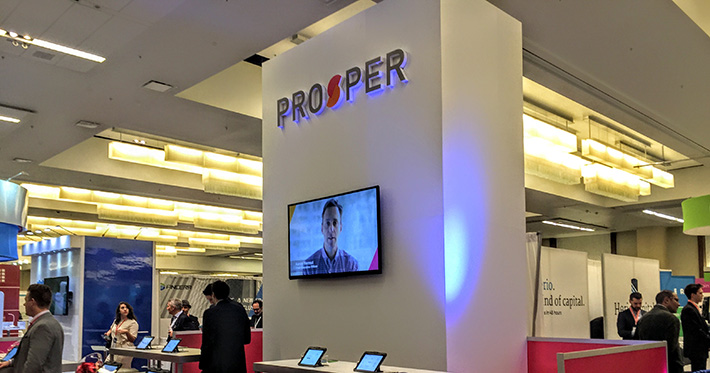Articles by deBanked Staff
No, FedNow Payments are Not a Digital Currency
April 9, 2023 The Federal Reserve is launching a new instant payments service called FedNow in July 2023. However, there is apparently a common misconception that FedNow is a form of digital currency or a step towards eliminating cash. On April 7, the Fed felt it had to release a statement to say that a central bank digital currency (CBDC) was not currently in process.
The Federal Reserve is launching a new instant payments service called FedNow in July 2023. However, there is apparently a common misconception that FedNow is a form of digital currency or a step towards eliminating cash. On April 7, the Fed felt it had to release a statement to say that a central bank digital currency (CBDC) was not currently in process.
“[FedNow] is like other Federal Reserve payments services, such as Fedwire and FedACH,” the Fed wrote. “FedNow will be available to depository institutions, such as banks and credit unions, in the United States and will enable individuals and businesses to send instant payments through their depository institution accounts. Instant payments allow individuals and businesses to send and receive payments within seconds at any time of the day, on any day of the year, so that the receiver of a payment can use the funds almost instantly.”
FedNow could offer a compelling usecase in the alternative lending industry but that will remain to be seen. In the meantime, as far as CBDCs go, the Fed says that it would need support from Congress and the executive branch “ideally in the form of a specific authorizing law” to consider issuing one. CBDCs have been a popular subject as of late given the total control they could give a governmental authority over its money. Among the potential capabilities would be the power to technologically deactivate or cancel anyone’s money if the government felt it was it being used for some unlawful purpose.
Intuit Originated $933M in Small Business Loans in FY 2022
April 5, 2023 Intuit, the software company often associated with Quickbooks, originated an astounding $933M in small business loans in its fiscal year 2022. That’s up substantially from the $232M it originated in FY 2021.
Intuit, the software company often associated with Quickbooks, originated an astounding $933M in small business loans in its fiscal year 2022. That’s up substantially from the $232M it originated in FY 2021.
It’s important to note that the company’s fiscal year 2022 ended on July 31, 2022 which means more data exists beyond that time. From Aug 1, 2022 – October 31, 2022, the company originated $314M in business loans. In the quarter that followed (Nov 1, 2022 – Jan 31, 2023), Intuit renamed the easily identifiable line item from “originations and purchases of term loans to small businesses” to “originations and purchases of loans” which may bear some significance given that it indicates a steep increase to $701M for that quarter, a record for Intuit by far. If that was entirely business loans then it would place Intuit amongst the largest small business lenders in the country.
All Registered Sales-based Financing Providers in Virginia (As of 3-29-23)
April 2, 2023Is the revenue-based financing provider you do business with registered to operate in Virginia? On July 1, 2022, Virginia’s commercial financing disclosure law went into effect and with that the necessity to register one’s business. As of March 29, 2023, 101 companies had registered. This is the official list of registered sales-based financing providers as of that date (yellow means it has been added since our last update):
- Advance Servicing Inc.
- Accredited Business Solutions LLC dba The Accredited Group
- Advance Funds Network LLC dba Advance Funds Network
- AdvancePoint Capital LLC dba advancepoint
- Ally Merchant Services LLC
- Alpine Funding Partners, LLC
- Business Capital LLC
- Byzfunder NY LLC dba Tandem dba Nano-FI
- Bridge Capital Services, LLC
- CFG Merchant Solutions, LLC
- Clarify Capital II LLC dba Clarify Capital
- Cloudfund VA LLC dba Cloudfund LLC
- Capflow Funding Group Managers LLC
- Clear Finance Technology (U.S.) Corp. dba Clearco
- Coast Premier LLC dba Coast Funding
- Commercial Servicing Company, LLC
- Corporate Lodging Consultants, Inc.
- Crown Funding Source LLC dba Crown Funding Source
- Diesel Funding LLC
- Direct Capital Source Inc.
- Dealstruck Capital LLC
- EBF Holdings, LLC
- Essential Funding Group Inc
- Errant Ventures LLC
- FC Capital Holdings, LLC FundCanna
- Fidelity Funding Group LLC
- Front Capital LLC
- Finova Capital, LLC
- Fintegra, LLC
- First Data Merchant Services LLC
- First Path Capital Ventures LLC dba First Path Capital
- FleetCor Technologies Operating Company, LLC
- Flexibility Capital Inc.
- Fora Financial East LLC
- Forward Financing LLC
- Fox Capital Group Inc.
- Fundamental Capital LLC
- Funding Metrics, LLC dba Quick Fix Capital
- Good Funding, LLC
- Granite Merchant Funding, LLC
- Invision Funding LLC
- Itria Ventures LLC
- Jaydee Ventures, LLC dba 1 West Capital dba 1 West Commercial
- Kapitus LLC
- Knight Capital Funding III, LLC
- Lexington Capital Holdings Ltd
- LG Funding LLC
- Legend Advance Funding II, LLC dba Legend Funding
- Liberis US Inc.
- Libertas Funding, LLC
- Liquidibee 1 LLC dba Liquidibee LLC dba Altfunding.com
- Loanability, Inc.
- Millstone Funding Inc.
- National Funding, Inc.
- Nav Technologies, Inc.
- Orange Advance LLC
- Pearl Alpha Funding, LLC
- Pearl Beta Funding, LLC
- Pearl Delta Funding, LLC
- Proto Financial Corp.
- PWCC Marketplace, LLC
- Parafin, Inc.
- PayPal, Inc.
- Payability Commercial Factors, LLC
- Pinnacle Business Funding LLC dba Custom Capital USA dba EnN OD Capital
- Platform Funding LLC
- Prosperum Capital Partners LLC dba Arsenal Funding
- QFS Capital LLC
- RFG USA Inc.
- Rival Funding, LLC
- Riverpoint Financial Group Inc.
- Rocket Capital NY LLC
- ROKFI LLC
- Ruby Capital Group LLC
- Rapid Financial Services, LLC
- Reliant Services Group, LLC
- Retail Capital LLC dba Credibly
- Revenued LLC
- Rewards Network Establishment Services Inc.
- Secure Capital Solutions Inc.
- Sky Bridge Business Funding, LLC
- SMB Compass LLC dba SMB Compass
- Sunrise Funding LLC
- Santa Barbara Tax Products Group, LLC
- SellersFunding Corp.
- Sharpe Capital, LLC
- Shine Capital Group LLC
- Shopify Capital Inc.
- Shore Funding Solutions Inc.
- Streamline Funding, LLC
- Stripe Brokering, Inc.
- The LCF Group, Inc.
- Unique Funding Solutions LLC
- United Capital Source Inc.
- Upfront Rent Holdings LLC
- Upper Line Capital LLC
- Vader Servicing, LLC
- Velocity Capital Group LLC
- Vivian Capital Group LLC
- Vox Funding, LLC
- ZING Funding I, LLC
Federal Regulator Enacts New 888-Page Law Covering Small Business Finance
March 30, 2023 This is NOT an April Fool’s joke. On Thursday, the CFPB released the final rules that govern how small business finance companies will have to collect and report data to the federal government. Such rules had been anticipated since the Dodd-Frank Act, passed in 2010, mandated that they be put in place. Thirteen long years later, the only part that may come as unexpected is the sheer magnitude of the language, 888 pages of fine print.
This is NOT an April Fool’s joke. On Thursday, the CFPB released the final rules that govern how small business finance companies will have to collect and report data to the federal government. Such rules had been anticipated since the Dodd-Frank Act, passed in 2010, mandated that they be put in place. Thirteen long years later, the only part that may come as unexpected is the sheer magnitude of the language, 888 pages of fine print.
Transactions within the scope of the rule include loans, lines of credit, credit cards, merchant cash advances, and credit products used for agricultural purposes.
According to the CFPB’s executive summary, compliance appears to start next year.
- A financial institution must begin collecting data and otherwise complying with the final rule on October 1, 2024 if it originated at least 2,500 covered originations in both 2022 and 2023.
- A financial institution must begin collecting data and otherwise complying with the final rule on April 1, 2025 if it: Originated at least 500 covered originations in both 2022 and 2023; Did not originate 2,500 or more covered originations in both 2022 and 2023; and Originated at least 100 covered originations in 2024.
- A financial institution must begin collecting data and otherwise complying with the final rule on January 1, 2026 if it originated at least 100 covered originations in both 2024 and 2025.
Call your lawyer.
Prosper Marketplace Grows Substantially in 2022
March 29, 2023 Remember Prosper Marketplace from back in the old peer-to-peer lending days? Well, they’re still around. In fact, the company originated $3.3B in loans in 2022, up from $1.9B in 2021. AND they were profitable, generating a net income of $70.5M, up from a net loss of $138.3M in 2021. Not bad! But this was foreseeable given that the company announced a surprise growth capital raise of $75M from a fund managed by Neuberger Berman in November of last year. At the time, Prosper CEO David Kimball said, “This is one of the most exciting times in Prosper’s history.”
Remember Prosper Marketplace from back in the old peer-to-peer lending days? Well, they’re still around. In fact, the company originated $3.3B in loans in 2022, up from $1.9B in 2021. AND they were profitable, generating a net income of $70.5M, up from a net loss of $138.3M in 2021. Not bad! But this was foreseeable given that the company announced a surprise growth capital raise of $75M from a fund managed by Neuberger Berman in November of last year. At the time, Prosper CEO David Kimball said, “This is one of the most exciting times in Prosper’s history.”
The company has long since moved away from a pure peer-to-peer lending model. Ninety-two percent of its loans in 2022 were funded through their Whole Loan Channel, for example.
Georgia on Verge of Passing a Commercial Financing Disclosure Law
March 27, 2023 Georgia is on pace to become the next state to pass a commercial financing disclosure law. SB 90 has sailed through both the state’s House and Senate with strong bi-partisan support and is potentially heading for the governor’s desk. The text of the bill is similar to the disclosure law recently enacted in Utah. It also explicitly states that brokers may not make or use any false or misleading representations in the course of its business.
Georgia is on pace to become the next state to pass a commercial financing disclosure law. SB 90 has sailed through both the state’s House and Senate with strong bi-partisan support and is potentially heading for the governor’s desk. The text of the bill is similar to the disclosure law recently enacted in Utah. It also explicitly states that brokers may not make or use any false or misleading representations in the course of its business.
“We’re Hiring” But are they really?
March 26, 2023 We’ve all encountered folks in the industry that will swear up and down that business has never been better even when everything is falling apart behind the scenes, but apparently businesses in general may go to great lengths to keep up such appearances. One way they do this is by advertising job roles that they won’t actually fill. According to Joe Mercurio, project manager at Clarify Capital, 43% of employers who post ghost jobs aren’t actively trying to fill positions but rather it’s “because they want to keep employees motivated or they want to give off the impression that the company is growing.”
We’ve all encountered folks in the industry that will swear up and down that business has never been better even when everything is falling apart behind the scenes, but apparently businesses in general may go to great lengths to keep up such appearances. One way they do this is by advertising job roles that they won’t actually fill. According to Joe Mercurio, project manager at Clarify Capital, 43% of employers who post ghost jobs aren’t actively trying to fill positions but rather it’s “because they want to keep employees motivated or they want to give off the impression that the company is growing.”
Clarify Capital gleaned this data from a survey it conducted which was then cited in the Wall Street Journal last week. The survey also found that employers have job listings up just to see who might apply, to have an active pool of candidates in case of turnover, or because they simply forget to delete listings for jobs that are no longer available.
According to the WSJ story, titled “Job Listings Abound, but Many Are Fake,” the number of ghost jobs distort hiring demand and applicants across different fields have reportedly found it increasingly difficult to apply for jobs where the employer is actually looking to fill it. The takeaway, perhaps, is that if one is pursuing a new opportunity right now, the presence of job listings may not be enough on its own to indicate which way a company is going. You’ll have to dig a little deeper so that you’re not disappointed.
Libertas Surpasses $2B in Funding Since Inception
March 20, 2023Libertas Funding has surpassed $2 billion in originations since the company started over six years ago. Company CEO Randy Saluck shared the milestone on LinkedIn earlier today.
“It took us 5 years to achieve $1 billion in funding but only 18 months to cross the $2 billion mark,” Saluck wrote. “Once again, I am humbled to have contributed to and been a part of this extraordinary achievement. It took incredible communication, drive, and focus by our whole team to achieve this milestone in such a short period of time. Great companies start with a great team, and our people are the best. We owe a lot of gratitude to our customers and referral partners as well as many others who have helped make this possible. The momentum is building in our company as we march toward $3 billion—following our well-deserved happy hour celebration!”






























